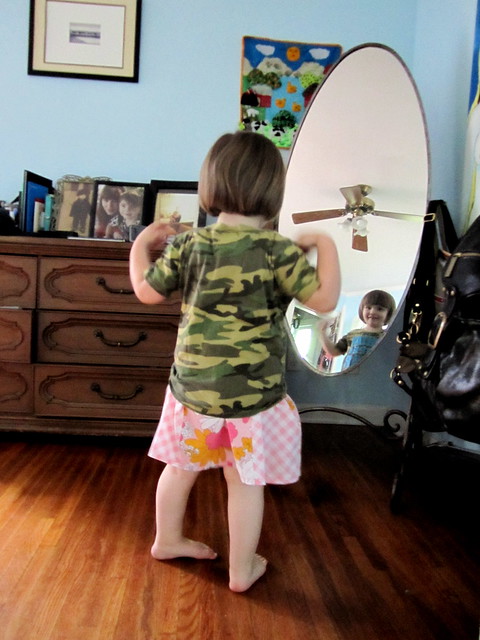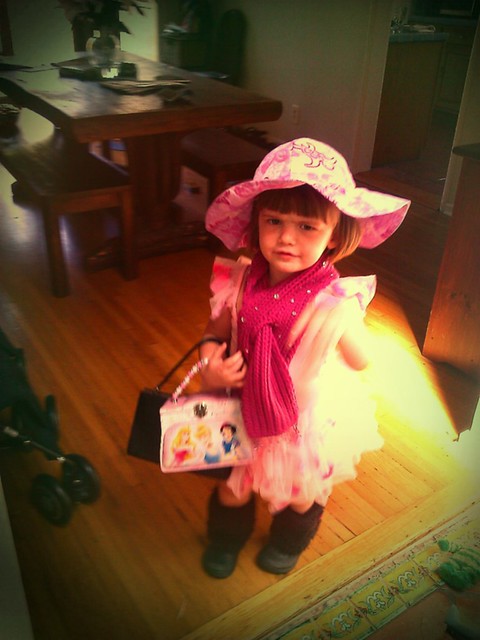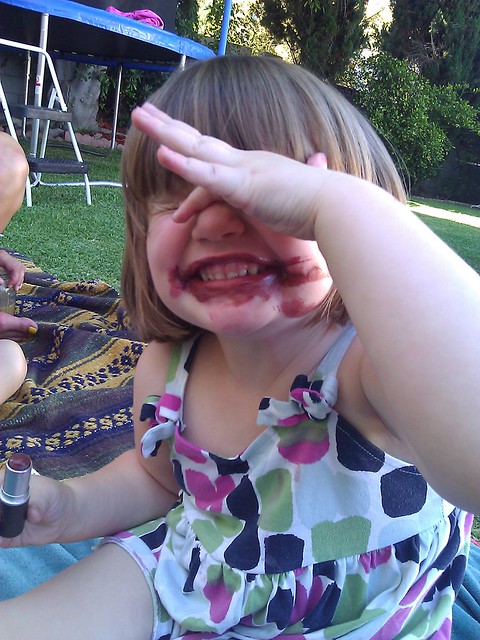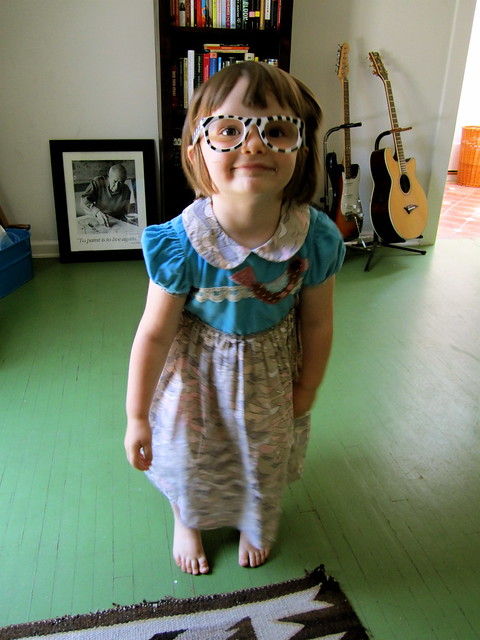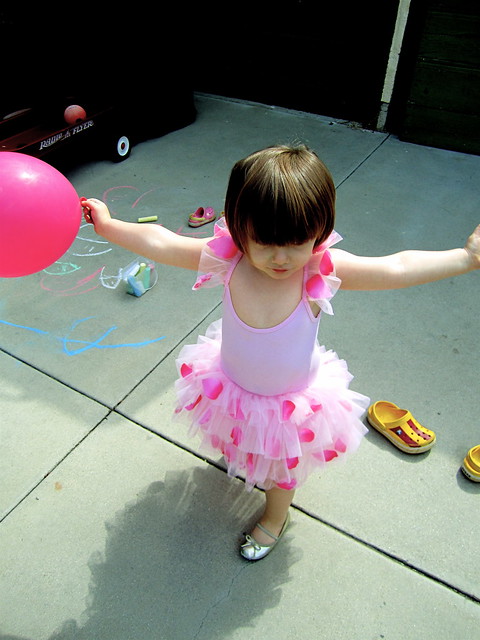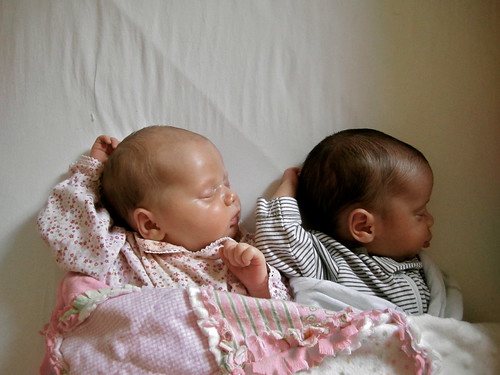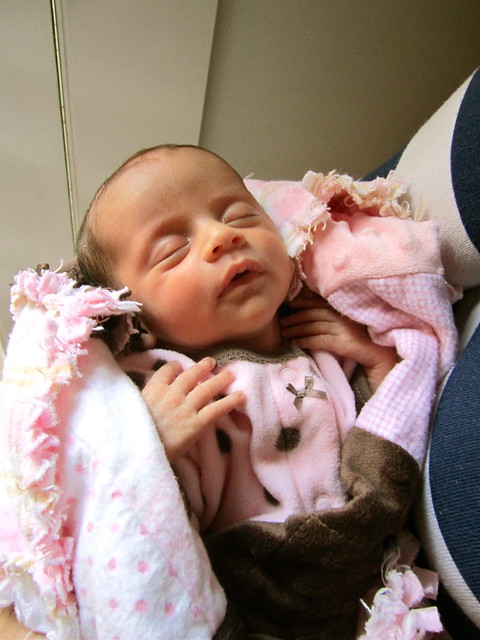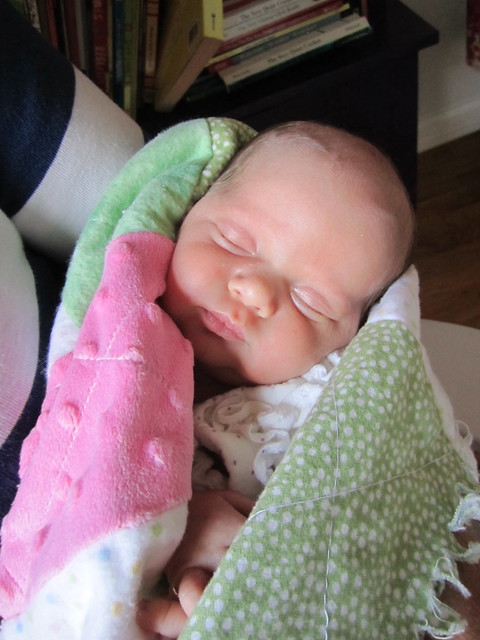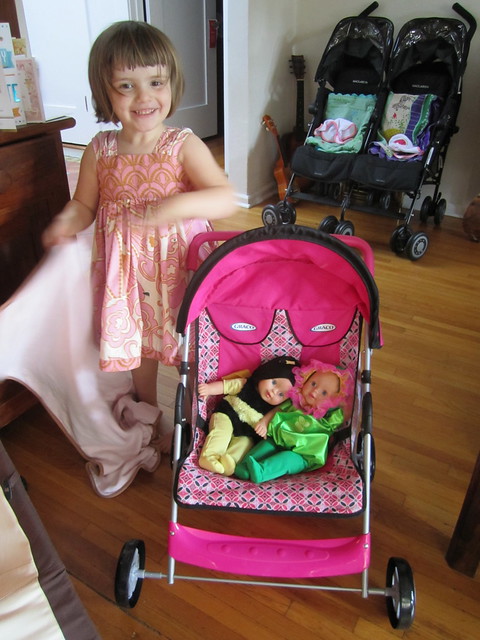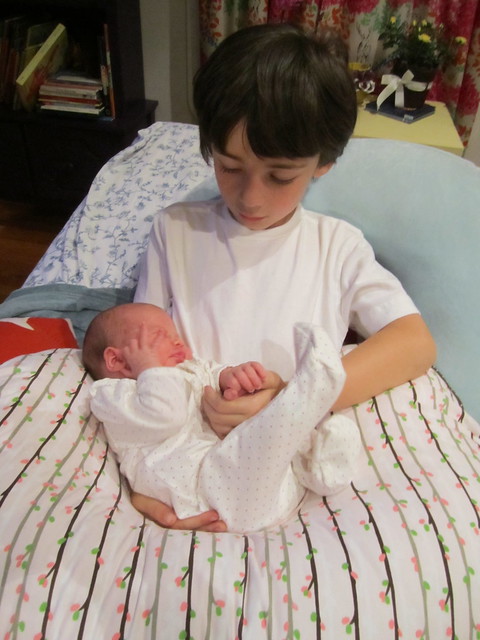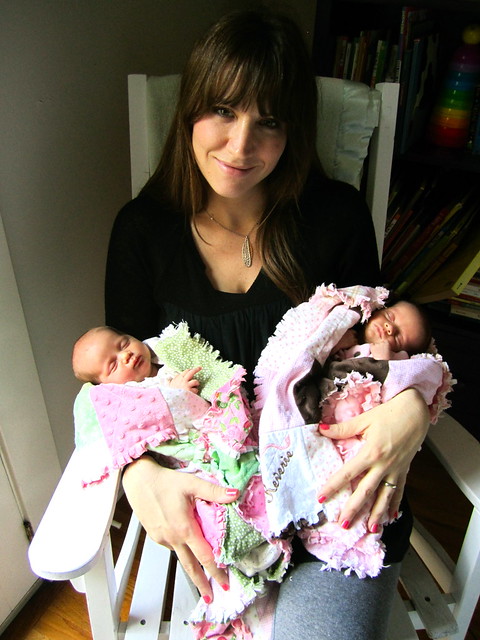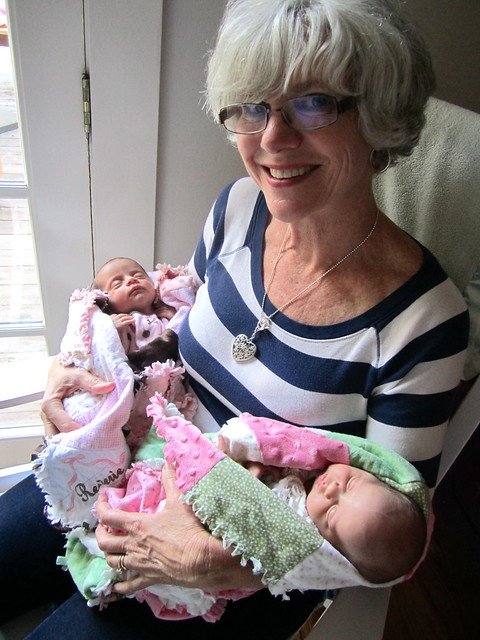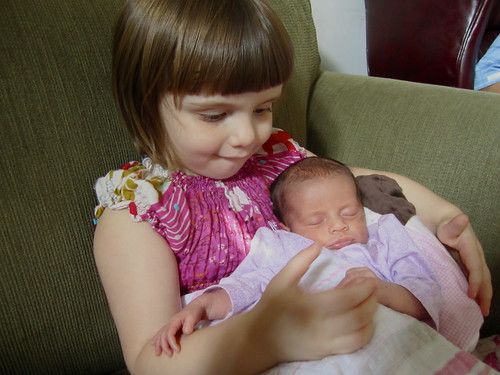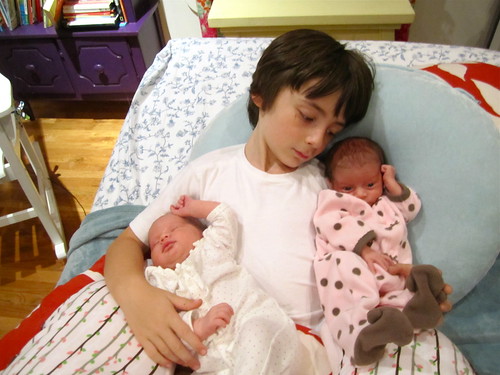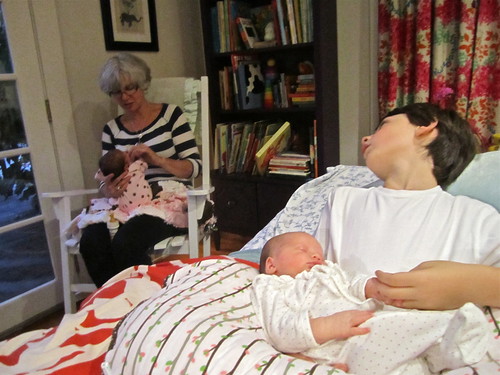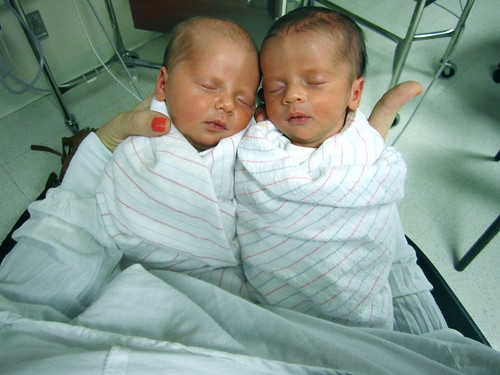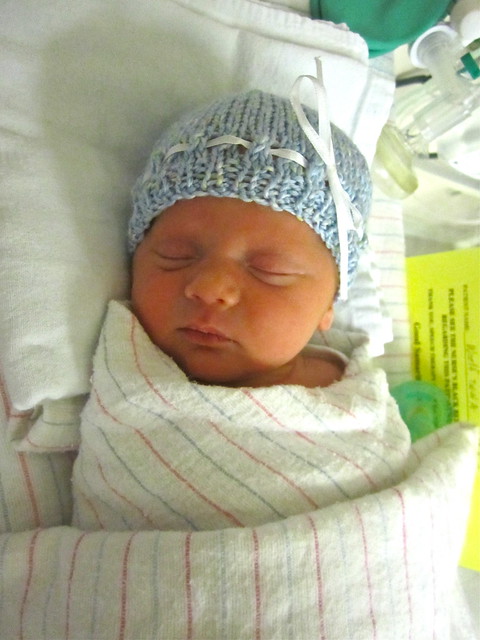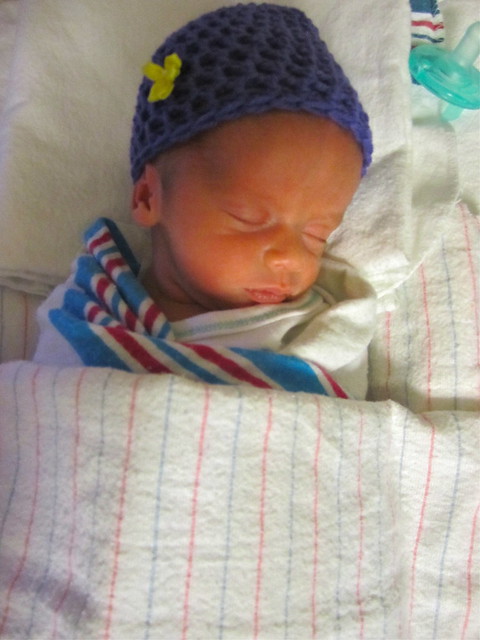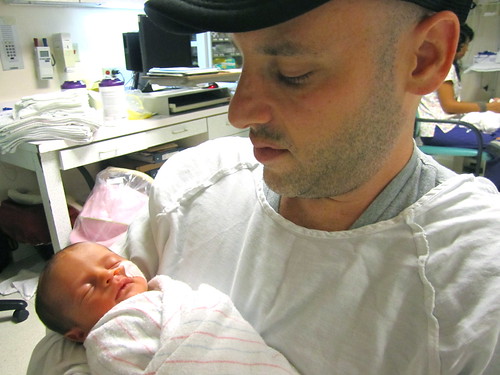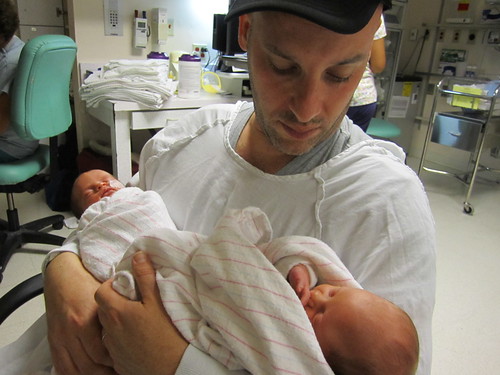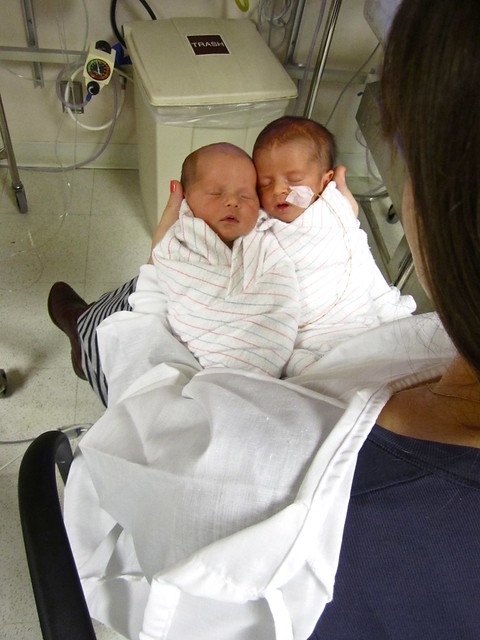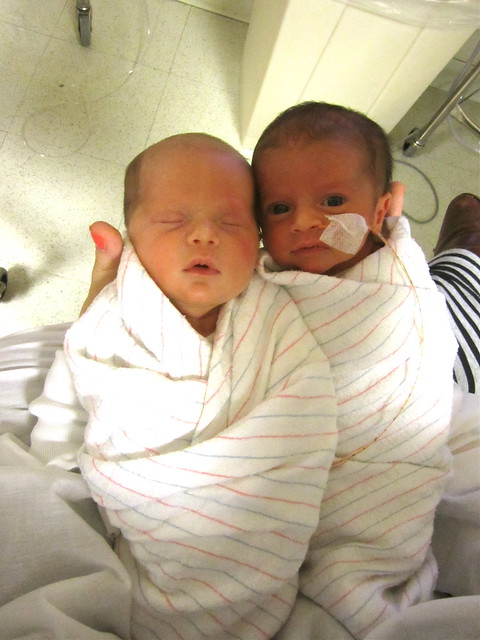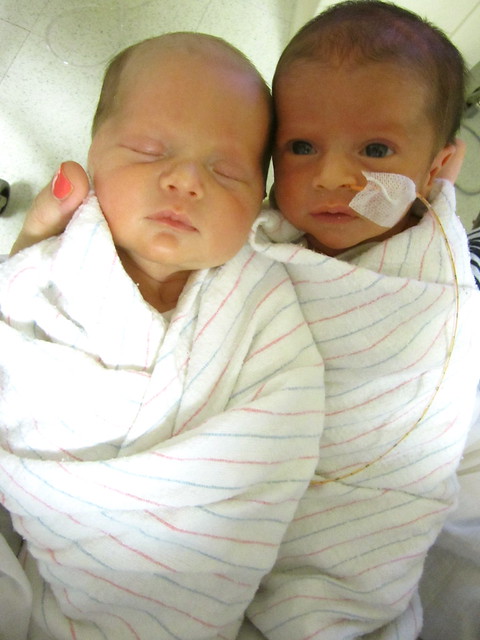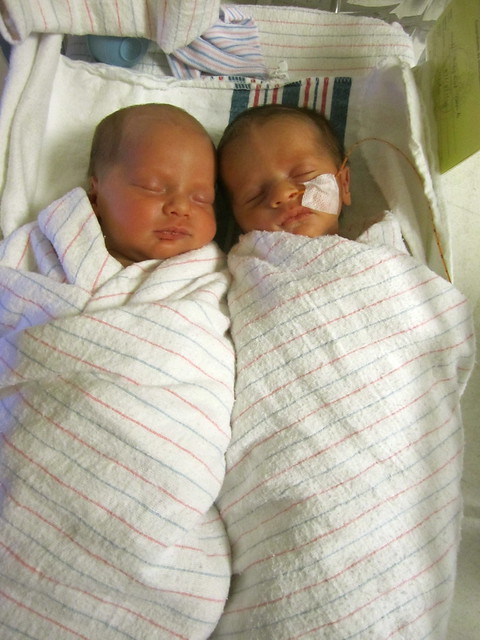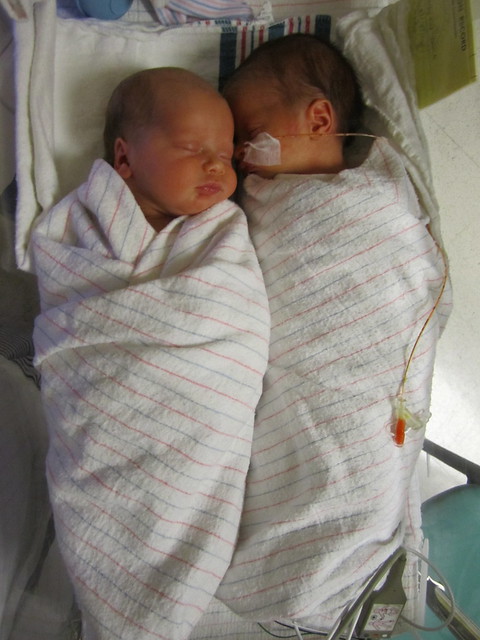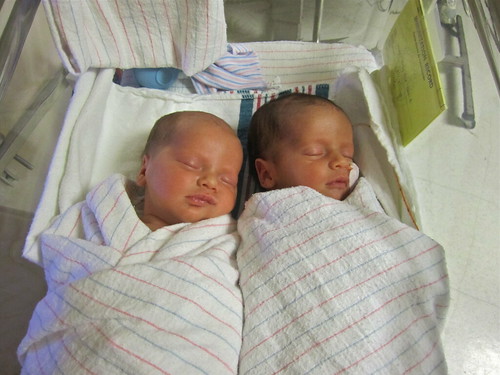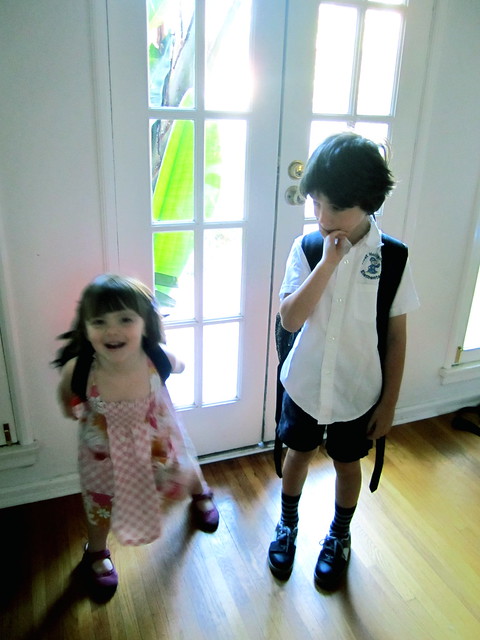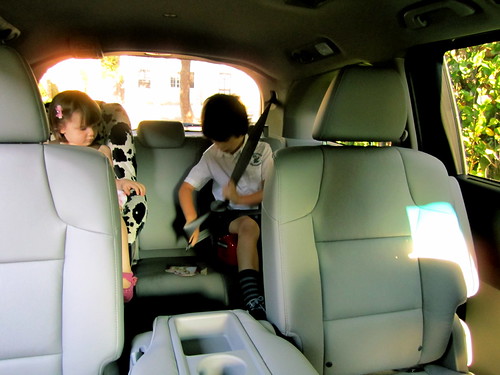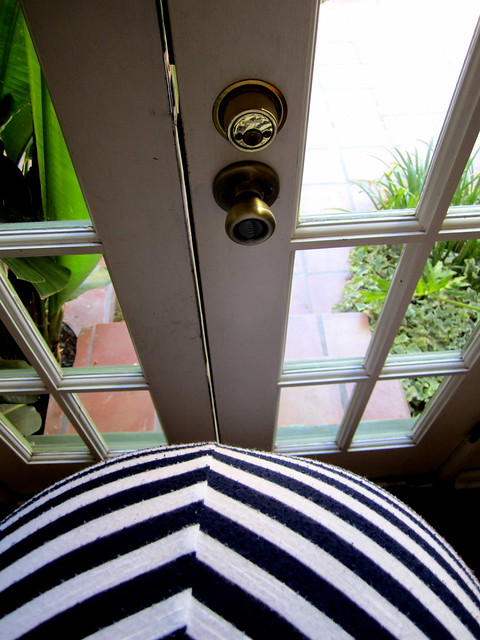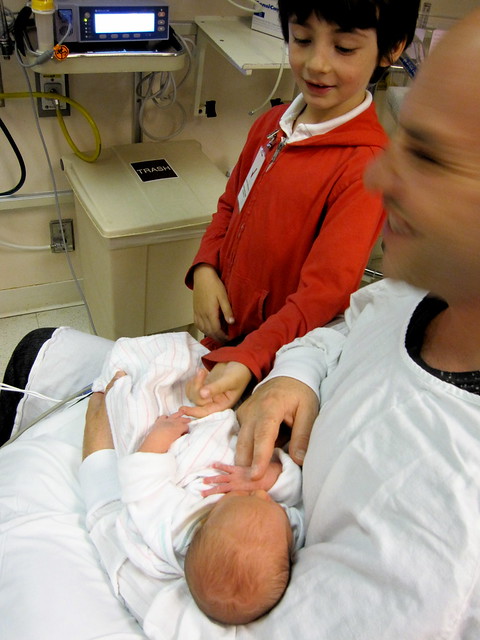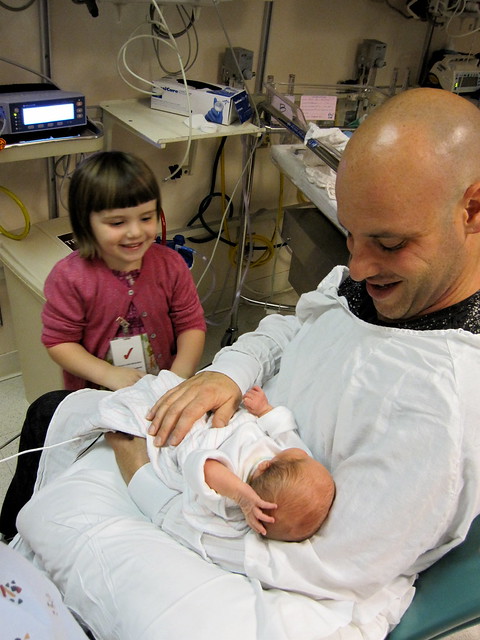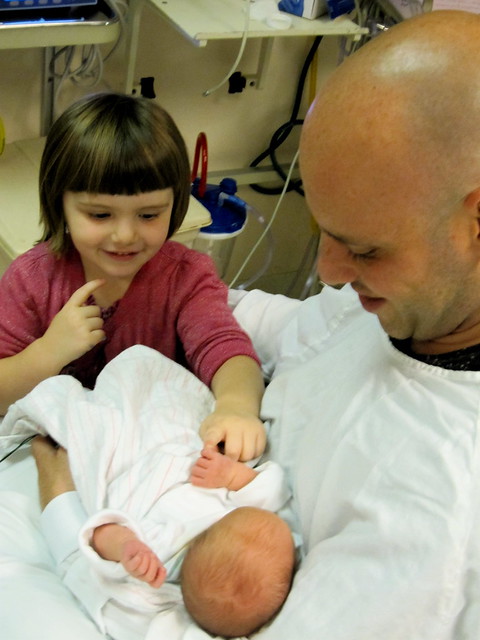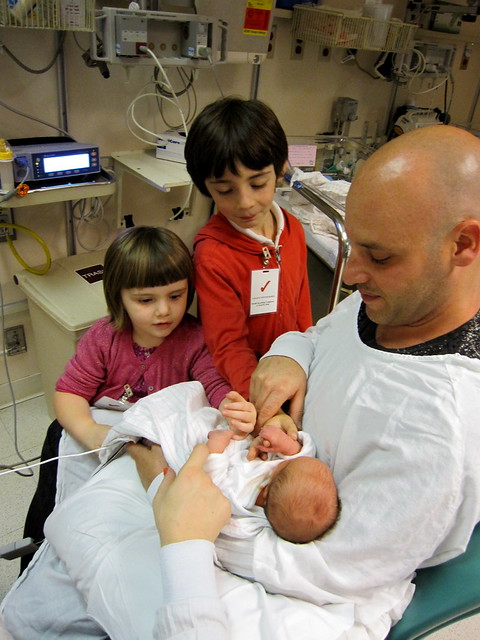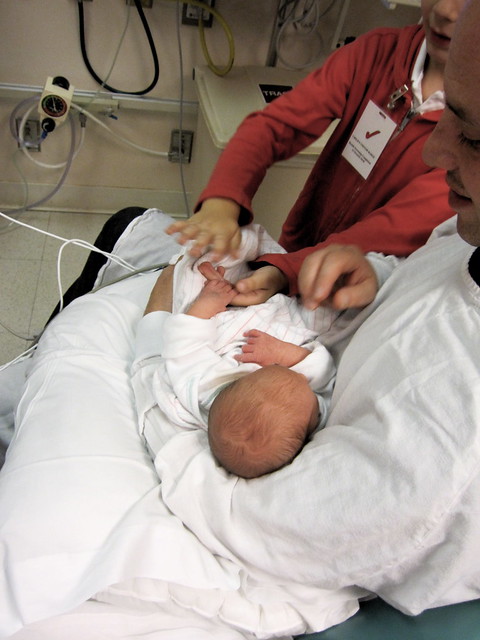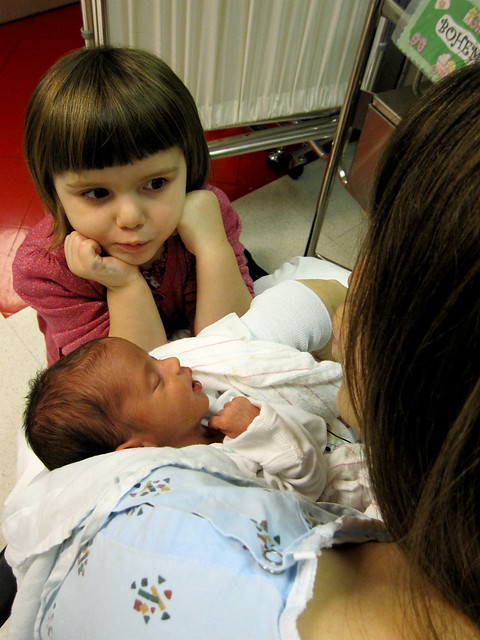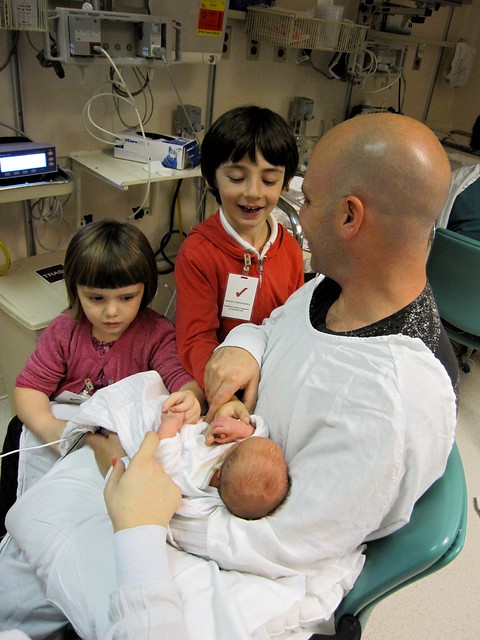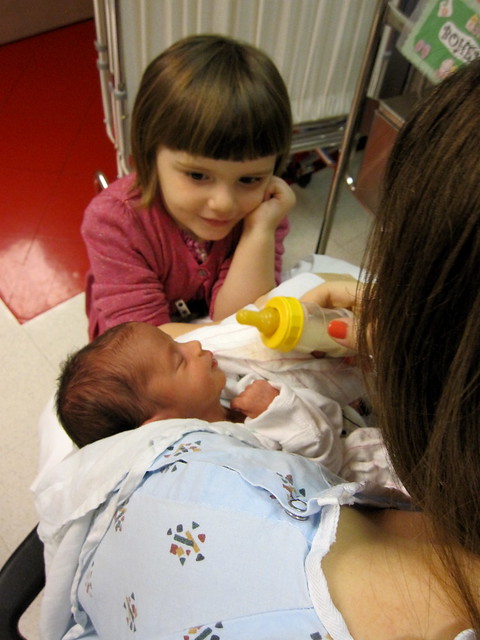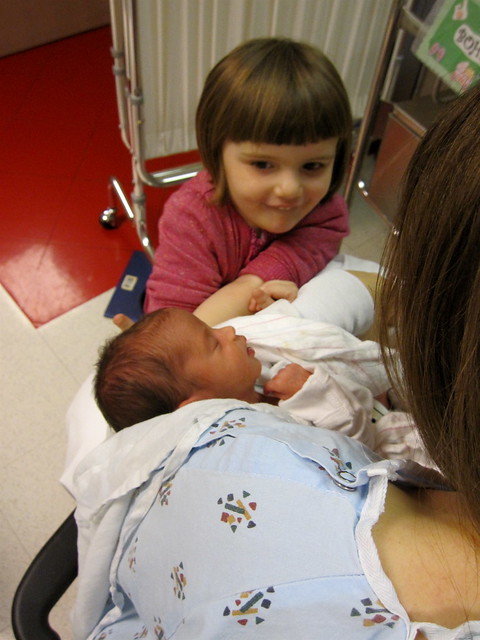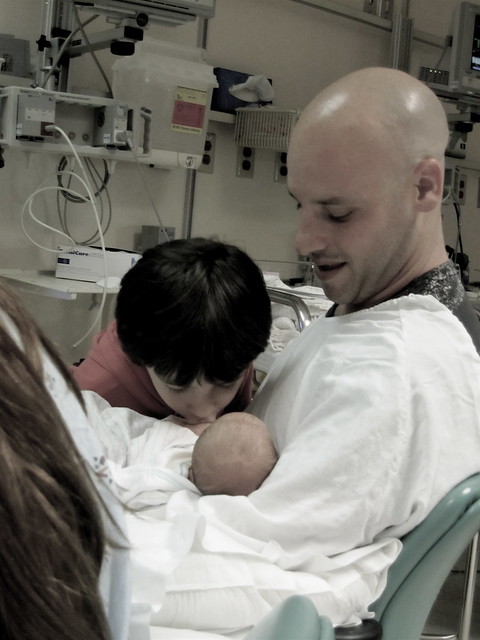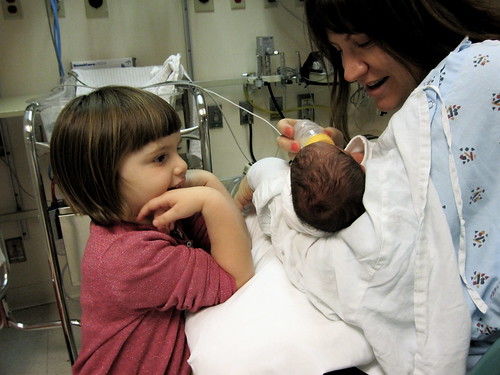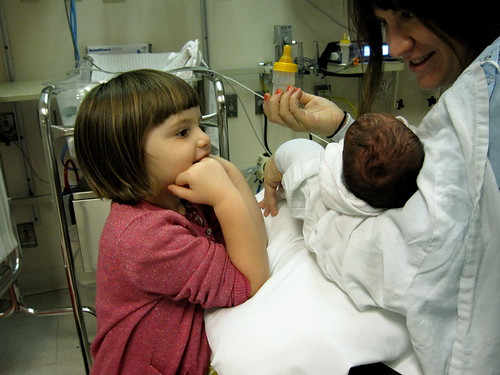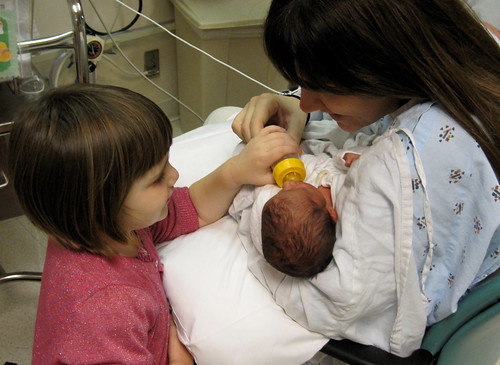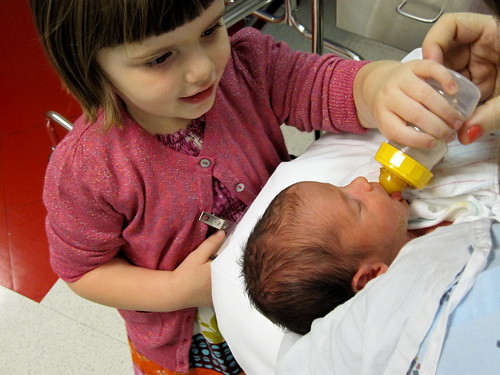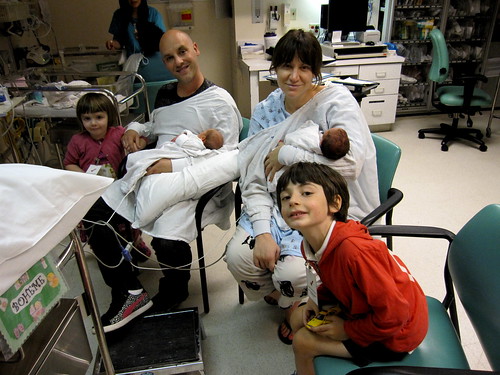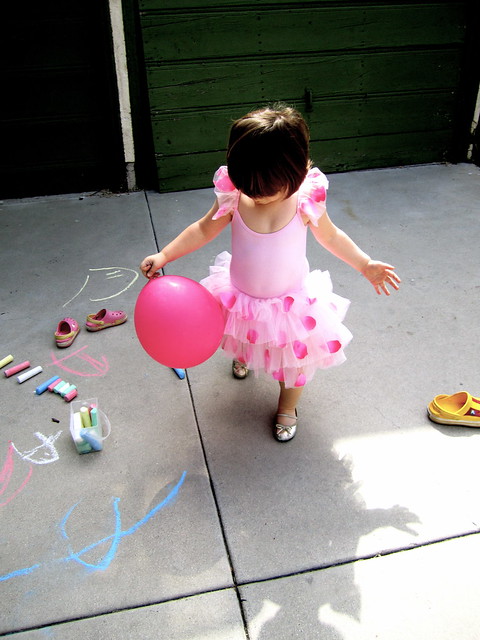
Back in June a thought-provoking piece by Lisa Bloom was published in the Huffington Post, its provocative title--"How to Talk to Little Girls." As a mother of a daughter with two more on the way three daughters, I was intrigued. But the article rubbed me wrong and here's why:
The article insinuates that society separates beauty and brains like north and south poles. Up or down? Left or right? Pick a team. That by complimenting little girls (specifically girls we don't know) on their physical attributes we are setting them up for a life of half-shirts and plastic surgery. Or at the very least, a belief that beauty is bigger than brains.
Bloom writes:
The truth is, no matter how we talk to little girls and little boys and older girls and older boys, all of us navigate our lives with insecurities, so we must raise our daughters (and sons) with the knowledge that they will, too. And there's nothing wrong with that. Our insecurities are an important component to better understanding ourselves. That's what makes us human and vulnerable. That's what makes us stronger - understanding our weaknesses, or more importantly, understanding that it's OKAY to have weaknesses.
...And lets be honest. Some of our children aren't going to grow up to be rocket scientists so who's to say that putting unnecessary intellectual pressure on children isn't potentially more harmful than commending them for physical attributes?
Teaching girls that their appearance is the first thing you notice tells them that looks are more important than anything. It sets them up for dieting at age 5 and foundation at age 11 and boob jobs at 17 and Botox at 23. As our cultural imperative for girls to be hot 24/7 has become the new normal, American women have become increasingly unhappy. What's missing? A life of meaning, a life of ideas and reading books and being valued for our thoughts and accomplishments.If women are unhappy as a whole then it's because we are told to take ourselves SO seriously that we have forgotten it's okay to have fun in our lives. I've said this before and I'll say it again--parents need to lighten up. Nobody's perfect and yet the pressure today's children face to measure up to robotic levels of "well-roundedness" is real. And it's more than just girls wanting to be "sexy." We are raising children during a time when they are told they must be "the very best" at everything. Not just physically but across the board.
"Be better, faster, prettier, more interesting! IN ORDER TO BE HAPPY YOU MUST WIN AT LIFE!"
I do agree with Bloom when she acknowledges the importance of asking questions instead of showering children with praise. About a year ago I wrote this piece about empowering our kids to praise themselves instead of relying solely on their parents and outside influences to do so. Instilling confidence in our children is, I think, our most important job as parents, second to unconditional love. I also think Bloom makes a great point when she writes of thinking before we speak to our daughters and to young girls in general. We could all do with a lesson in that, in opening our minds before opening our mouths, in thinking about the ramifications of our words, including the motives behind our compliments.
But I disagree with her that we should ignore physical attributes entirely, especially when it comes to talking to strangers. Our physical appearance(s) will always be the first thing a stranger sees. Not because it's what's most important, but because... quite literally, IT IS THE FIRST THING A STRANGER SEES!
The truth is, no matter how we talk to little girls and little boys and older girls and older boys, all of us navigate our lives with insecurities, so we must raise our daughters (and sons) with the knowledge that they will, too. And there's nothing wrong with that. Our insecurities are an important component to better understanding ourselves. That's what makes us human and vulnerable. That's what makes us stronger - understanding our weaknesses, or more importantly, understanding that it's OKAY to have weaknesses.
...And lets be honest. Some of our children aren't going to grow up to be rocket scientists so who's to say that putting unnecessary intellectual pressure on children isn't potentially more harmful than commending them for physical attributes?
I loved what Miguelina at Everyday Treats wrote on the subject:
Humans desire beauty. It feels good to feel attractive. Pretending it isn't so doesn't make it go away. A lot of people (men and women alike) enjoy decorating themselves in ways that make them feel attractive. What does that have to do with their brains? Nothing.A confident woman in work can also be a confident woman physically and hearing that she's beautiful at a young age isn't going to keep her from attending college or reading a book.
I want my children to own their beauty, not be ashamed of it. I want them to know how to take compliments and to return them because we are the sum of all of our parts. In order to have healthy bodies we must know how to properly care for them, not ignore that they exist. Our bodies are more than just shells. They bring pleasure and yes, even happiness when treated with respect and love. So ignoring our daughters' physical selves does not protect them so much as it sets them up for potential guilt and insecurity.
I happen to think my children are extraordinarily beautiful. And yes, I tell them so. Every day. Because I feel it and I want them to know that! I want them to hear me! Because I believe that when you love someone, you tell them so. Hell! When you love someone's shoes, you tell them!
"Hey, you! Fantastic shoes!"
I let Fable wear my lipstick sometimes. She also puts shaving cream all over her face when her dad shaves and enjoys wearing thick-rimmed glasses with her favorite glitter scarf. And sometimes she rocks a camo tee over a pink dress. Sometimes she plays "princess." Other times she slaps on her stethoscope and pretends to be a doctor. Both roles bring her equal joy and why not?
"Wear what makes you happy," I tell her. "Do what makes you happy."
Being a teenager is hard enough without having to deal with parents who can't look past their own fears and remember what it's like to be thirteen or sixteen or eighteen and feel completely misunderstood and hormonally challenged. Mine always made me feel like no matter what I was going through, I was normal. And yes, they let me wear lipstick at twelve. And yes, I came out of it alive AND with a healthy self-esteem.
Pop culture will not kill the Engineer or Author or Professor of Women's Studies in your child. Complimenting little girls on their clothes isn't the gateway drug to implants. A girl can love both books and magazines, documentaries and rom-coms. A competent and confident woman can rock a miniskirt as well as ace the MCATS. The key words here are confidence and self-respect and a girl can only have both if she acknowledges her body AS WELL as her mind.
I love what Skipper has to say on the subject, here:
Days after shooting the above Momversation video, (comment thread is great, by the way. Highly recommended reading), I read a piece by my friend, Sarah Sophie Flicker on Hello Giggles which spoke to the same kinds of questions I have as a mother of three daughters. Because like Sarah Sophie, I enjoy makeup and clothes and nail polish and getting dressed up and done up and fashion magazines. But also like Sarah I feel empowered by those things. I am a more competent mother, writer, wife, friend and all-around human being with my hair brushed and makeup fresh, wearing something that makes me feel beautiful.
Hear hear, sister. Because an intellectual conversation can still be had over sparkly-tutus. And pink-frosted cupcakes. And, yes, even princess crowns.
I happen to think my children are extraordinarily beautiful. And yes, I tell them so. Every day. Because I feel it and I want them to know that! I want them to hear me! Because I believe that when you love someone, you tell them so. Hell! When you love someone's shoes, you tell them!
"Hey, you! Fantastic shoes!"
I let Fable wear my lipstick sometimes. She also puts shaving cream all over her face when her dad shaves and enjoys wearing thick-rimmed glasses with her favorite glitter scarf. And sometimes she rocks a camo tee over a pink dress. Sometimes she plays "princess." Other times she slaps on her stethoscope and pretends to be a doctor. Both roles bring her equal joy and why not?
"Wear what makes you happy," I tell her. "Do what makes you happy."
Our girls need to hear that they're loved, they need to be complimented for the things that make them kick ass, they need to come equipped with the knowledge that beauty is ONLY powerful when one has something to back it up with. But they also need to know that it's okay to want to look their best. That it doesn't make them (or anyone else) vapid or shallow or LESS intellectual to want to don a pair of pretty shoes. Harvard will still accept you if you like the color pink. And think princesses are fun. And dance to Katy Perry. And rock mascara.
Isn't the core of feminist "fem?" Why then, are we so afraid that our daughters will want to enjoy being girls? I want my daughters to understand and embrace their sexuality as they come of age, not be ashamed of it. Does that mean I'm going to buy them a push-up bra at fourteen? No. But I'm certainly going to be understanding if and when they ask for one. Because I remember how it felt to be fourteen. To go to bed a child and wake up a woman seemingly overnight. I remember how confusing and conflicting that was. I remember wanting people to treat me like a woman because suddenly my body was doing womanly things. Not because I wanted "boobs" like some pop-culture starlet but because, all of a sudden, I HAD THEM!
Being a teenager is hard enough without having to deal with parents who can't look past their own fears and remember what it's like to be thirteen or sixteen or eighteen and feel completely misunderstood and hormonally challenged. Mine always made me feel like no matter what I was going through, I was normal. And yes, they let me wear lipstick at twelve. And yes, I came out of it alive AND with a healthy self-esteem.
Pop culture will not kill the Engineer or Author or Professor of Women's Studies in your child. Complimenting little girls on their clothes isn't the gateway drug to implants. A girl can love both books and magazines, documentaries and rom-coms. A competent and confident woman can rock a miniskirt as well as ace the MCATS. The key words here are confidence and self-respect and a girl can only have both if she acknowledges her body AS WELL as her mind.
I love what Skipper has to say on the subject, here:
Maybe better to teach a little girl that she doesn't have to choose between picking the perfect outfit to shine at the dinner party and talking about books while she's there?
And Megan at Crazybananas responded similarly. She writes:
How do I instill the importance of education, kindness, smarts, empowerment, over fashion, beauty and princesses? Can I show her a positive image for female empowerment and still wear sky high heels and red lipstick everyday? If I spend half an hour getting ready and then turn around and tell her that beauty isn’t everything and it’s more important to be smart, am I sending a conflicting message?
... The one thing I do know is that the greatest gift I can give my daughter is for me to be happy, fulfilled, satisfied both as an artist and a mother. This also means being myself 100%. Being “me” means dressing up in my wacky costumes, primping and pruning, but doing it because it is the truest representation of who I am. If I am living my life truly and passionately, I know that she will absorb all these aspects of me as a woman, not just the pretty, fluffy, sparkly bits. I suppose I’ve come to the conclusion that the biggest gift of empowerment I can give my daughter is an example of a happy, loving and fulfilled life. That is my hope, anyhow.
GGC

